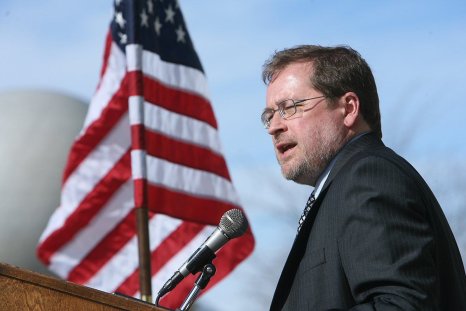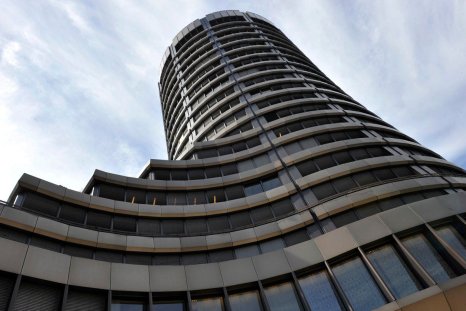Why We're in the Budgetary Soup
Championing smaller government without coming to grips with Social Security and Medicare is like playing basketball without a ball.
Radicals, Reactionaries, and the Fourth
The overlooked reality in the debate about American "exceptionalism" is that most Americans don't think it's debatable.
Global Economic Paralysis?
The Bank for International Settlements has just published its annual report, and it is a dour document.
The Great Jobs Mismatch
One puzzle of this somber economy is the existence of unfilled jobs in the midst of mass unemployment.
Hunkered-down America
It's a cliche—but true—that an obstacle to a stronger economic recovery is the lack of confidence in a strong recovery.
Let's End Medicare 'As We Know It'
It's time that we alter the incentives to reward better care, not more care.
Stuck in a Post-Crisis Gloom
It may be time to move beyond pessimism. Ever since the financial crisis, Americans have wallowed in fear and anxiety. Understandably. Although a recovery — as defined by academic economists — started about two years ago, it hasn't felt like one.
Samuelson: The Elderly are Better Off Than Advertised
When House Speaker John Boehner calls for trillions of dollars of spending cuts, the message is clear. Any deal to raise the federal debt ceiling must include significant savings in Social Security and Medicare benefits. Subsidizing the elderly is the biggest piece of federal spending (more than two-fifths of the total), but trimming benefits for well-off seniors isn't just budget arithmetic. It's also the right thing to do.
A Silver Lining in the Housing Bust
Almost everyone considers the housing collapse a disaster, and it is. Since 2007, roughly 8 million homes have gone into foreclosure. If you're a homeowner, the steep fall in prices is calamitous. But if you're a future buyer, it's a godsend. What we're seeing is a massive wealth transfer from today's older homeowners to tomorrow's younger homeowners.
Ben Bernanke's Bet on Jobs and Inflation
How much can the Fed reduce unemployment without stoking inflation?
Obama Abdicates on the Budget
If you've wondered why it's so hard to subdue budget deficits, you should consult a new study from the Congressional Budget Office called "Reducing the Deficit: Spending and Revenue Options" (free at www.cbo.gov).
The Politics of Wishful Thinking
In the Great Budget Debate, Democrats and Republicans are closer than you might think. Neither is proposing a balanced budget any time soon; both peddle soothing myths to convince supporters that they're upholding either "liberal" or "conservative" values.
The Real GE Scandal
It's not that the company won't pay any 2010 U.S. income taxes. It's that we don't know how to tax global business.
Give TARP a Break
Almost everyone loves to hate TARP. It's a favorite political sport of liberals, conservatives, Republicans, Democrats—and the public. A Bloomberg poll last October asked how TARP had affected the economy.
Another European Crisis Looming?
As a nation reels from an earthquake's destruction, an entire continent faces an economic crisis of its own.
Social Security Is Middle-Class Welfare
It's not a savings plan and many seniors don't need it. Let's admit it so we can avert a disaster.
Is Organized Labor Obsolete?
What we are witnessing in Wisconsin and elsewhere is the death knell of Big Labor. Once upon a time, most Americans could identify the head of the AFL-CIO.
Who Rules America? Retired People.
In the deficit crisis, we're held hostage by the senior lobby.
High-Speed Rail Is a Fast Track to Government Waste
Vice President Biden, an avowed friend of good government, is giving it a bad name. With great fanfare, he went to Philadelphia last week to announce that the Obama administration proposes spending $53 billion over six years to construct a "national high-speed rail system."
Egypt's Unrest and America's Oil Dependence
Never underestimate Americans' capacity for denial. The upheaval in Egypt reminds us of lessons that, despite decades of warnings, we have consistently sidestepped: the United States and the rest of the world will depend on oil for the indefinite future, global oil markets remain hostage to political crises that cannot be predicted or controlled, and we have not taken the prudent steps that would reduce—though not eliminate—our vulnerability to catastrophic oil interruptions.
How Obama's Speech Muddied the Budget Debate
It was a teachable moment—and Barack Obama didn't teach. Unless public opinion changes, we won't end our budget deadlock. As is well known, Americans want budget deficits curbed.
China's New World Order Demands Stronger U.S. Response
By all appearances, Chinese President Hu Jintao's visit to Washington last week changed little in the lopsided American-Chinese relationship. What we have is a system that methodically transfers American jobs, technology and financial power to China in return for only modest Chinese support for important U.S. geopolitical goals: the suppression of Iran's and North Korea's nuclear weapons programs. American officials act as though there's not much they can do to change this.
The Shadow of the '60s
We are, it's said, living through the most wrenching period since the end of World War II. The feelings and facts are genuine, but the conclusion amounts to historical amnesia. At least one other period rivals the present for its disillusion and contentiousness—the 1960s.
To Foster High Achievers, Think Beyond the Classroom
Almost everyone who worries about America's "competitiveness" in the world bemoans the sorry state of U.S. K-12 education. The Chinese and others do better. We need to catch up.
Judging Obama's Economics
President Obama must take some comfort that the latest economic forecasts are becoming more optimistic about 2011 and beyond. The more upbeat of these (from, say, Richard Berner of Morgan Stanley) have the economy's growth accelerating next year to about 4 percent from less than 3 percent and the unemployment rate dropping from the present 9.8 percent to 8.6 percent by year-end.
On Medicare and Social Security, Be Unfair to the Boomers
I received my Medicare card the other day, recognizing my 65th birthday and making me part of one of America's biggest problems. By this, I mean the burden that the massive baby-boom generation will impose on its children and the nation's future.
Retiree Benefits Are Cheating Our Children
Except for those on Social Security and Medicare, government for most middle-class Americans consists mainly of schools, police, fire protection, roads and ambulance service. It's states and localities. How are they faring in the present economy? Conventional wisdom holds that they've been crushed by dramatic declines in tax revenues and have resorted to deep cuts in public services. Well, not exactly.
What the Bowles-Simpson Plan Left Out
People who wonder what America's budget problem is ultimately about should look to Europe. In the streets of Dublin, Athens, and London, angry citizens are protesting government plans to cut programs and raise taxes.























